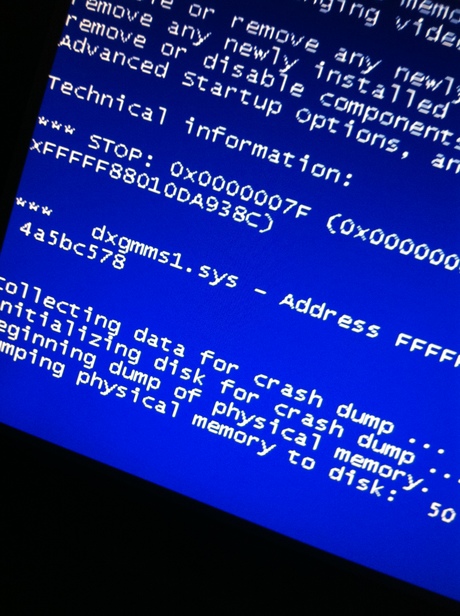Government loosening dependence on Microsoft: common document format for government agencies

In his blog on the Australian Government Department of Finance and Deregulation website, the Australian Government Chief Technical Officer John Sheridan has discussed the Common Operating Environment (COE) Review Working Group’s review of the Whole of Government (WofG) COE Policy and accompanying Standard Operating Environment (SOE) Build Guidelines for Windows.
This review has focused, in part, on a number of specific issues related to refining and clarifying the intent of the standards set out in the WofG COE Policy.
Of interest is the desire to use an open standard for the common document format to used by government agencies. This will loosen the current reliance on formats with Microsoft requirements. The new draft now requires that office productivity suites provide support for at least version 1.1 of the Open Document Format for Office Applications (ODF) as defined by ISO/IEC 26300:2006/Amd 1:2012.
The related standard within the WofG COE Policy has been revised as follows:
| Standard | Effect |
| The office productivity suite must support at least version 1.1 of the Open Document Format for Office Applications (ODF) as defined by ISO/IEC 26300:2006/Amd 1:2012. | Office productivity suites provide support for a common file format to facilitate the exchange of information between agencies. This does not preclude the use of other file formats. |
In evaluating the adoption of ODF as the preferred supported format, consideration was given to a number of factors:
- The adoption of ODF as the preferred supported format is consistent with a guiding principle of the WofG COE Policy, namely, that the COE will be based on common standards and, where practical, these will be based on open standards.
- Support for ODF is available from a wide range of office productivity suites across a variety of operating system platforms, in both open-source and proprietary implementations, allowing agencies a great deal of flexibility in selecting a product which conforms to the COE Policy standard.
- Standardising on a format supported by a wide range of office suites provides for the greatest possible degree of interoperability without mandating the use of a specific product, as well as providing the best basis for reliable interchange of information between agencies deploying differing office productivity suites.
- While the majority of agencies currently deploy a version of Microsoft Office, this does not limit the adoption of ODF as the commonly supported format, as Microsoft Office provides native support for ODF in versions later than Office 2007 SP2.
- Support for a format based on an open standard ensures the long-term availability of the data contained in documents produced while eliminating the potential for a vendor ending support for a specific format.
- ODF is continuously developed and updated, with the latest version (1.2) including additional accessibility features, RDF-based metadata, a spreadsheet formula specification based on OpenFormula and support for digital signatures. ODF 1.2 has been approved as an OASIS standard and is expected to be submitted to ISO/IEC JTC 1 in the near future.
- The inclusion of a spreadsheet formula specification in ODF 1.2 addresses one of the key factors limiting interoperability between spreadsheet applications in previous versions. This, coupled with Microsoft Office 2013’s support for the format, means that formulae contained in spreadsheets can be reliably transferred between applications.
- Defining a common format to be supported by all office productivity suites does not preclude the use of other formats.
- This format may provide greater support for cloud-hosted office productivity suites, should use of those become more widespread in the future.
Examples of office productivity suites with support for ODF
| Office productivity suite | Operating systems |
| Google Docs | Any (web-based) |
| Lotus Symphony | Windows, Linux, Mac OS X |
| LibreOffice | Windows, Linux, Unix-based systems, Mac OS X, Solaris |
| Microsoft Office (2007 SP2/2010/2013) | Windows |
| OpenOffice | Windows, Linux, Unix-based systems, Mac OS X, Solaris |
| StarOffice | Windows, Linux, Solaris |
It is also important to note that while WofG COE Policy will require that office productivity suites support at least ODF 1.1, it does not mandate the use of that format.
Sheridan concluded that he would like to invite interested parties to review the documents and provide any comments through this forum.
Once feedback has been received, the department will conduct a final review of the documents, referring to the Working Group as necessary. The updated policy will then be taken to the Chief Information Officer Committee (CIOC) for advice and to the Secretaries’ ICT Governance Board (SIGB) for approval.
Four ways AI can finally make threat intelligence useful and not just noisy
Done poorly, threat intelligence is noise. But done well, it becomes one of the most powerful...
Australia’s top tech priorities for 2026
It is anticipated that AI will evolve from a pilot project to a productive standard, underpinned...
Why AI's longevity lies in utility, not novelty
The real potential of AI is in underpinning the invisible systems powering everyday business.







